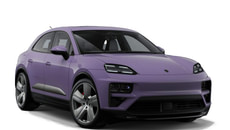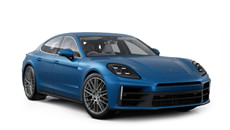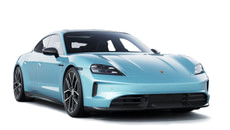Porsche has completed the first round of successful tests for its new four-door, electric sports car, with an expected launch date sometime in 2020.
The car that has been codenamed J1, was previewed by the Porsche Mission E concept at the 2015 Frankfurt motor show and will be the brand’s first bespoke all-electric model and the fifth in its global line-up.
While other manufacturers are selecting SUVs as their first electric cars for packaging reasons, Porsche has opted for a sportier model to showcase that its electric technology the brand is as much about performance as it is about reducing emissions.
Porsche R&D boss Michael Steiner confirmed that design work on the model is now complete and very close to the Mission E concept. Development mules have completed testing and Porsche has begun tests of full-body prototype versions of the production car.
No official name has yet been given to the production-spec model with Porsche boss Oliver Blume confirming it will not use the same name as the concept.
The concept car is pitched as halfway between a 911 and a Panamera. In fact, Porsche insiders refer to it as a “four-door sports car”, with the marque keen to use electric technology on a completely new type of model to bring the brand to more customers.
Steiner said the brief is “a really sporty sports car, a four-seater that’s low on the road, with a low centre of gravity. A car that’s typically Porsche but electric.”
The Mission E is the first step towards Porsche electrifying its entire range as part of a Volkswagen Group target of 2030 to have an electrified version of every model offered.
Porsche is not expected to build an electric 911 as the only way to store enough batteries for a feasible range would be in the floor. That would mean increasing the car’s ride height and rendering it something other than a sportscar in Porsche’s eyes.
However, the next-gen 911 range, scheduled to arrive in 2018 in international markets, may sport a plug-in hybrid version though the production-spec Mission E is likely to launch before the hybrid 911.
Steiner said the more an electric car has to perform as a sports car, the more weight comes into the equation. “The Mission E is the sweet spot of sports car performance that size-wise provides enough space for significant battery packages,” he said.
The J1’s architecture is a bespoke Porsche development and differs from other electric platforms being engineered within the VW Group. It is also set to underpin Bentley’s first electric model at the turn of the decade, using the Speed 6e concept as inspiration in style, if not in size. The Speed 6e is a shorter, two-door sports car.
The Mission E concept car used two electric motors – one on each axle – to produce a combined 608hp and 900Nm of peak torque, sent to all-four-wheels. The firm quoted a 0-100kph time of 3.5 seconds and claimed a 0-198kph time of under 12 seconds. This is despite the concept’s kerb weight of over two tonnes.
Porsche’s Zuffenhausen centre is currently being expanded to support the new model and they plan to sell around 20,000 Mission Es a year once production is ramped up. Blume has confirmed that it will come with a range of power outputs and chassis set-ups. “We will offer different levels of performance,” said Blume. “There will be sporty, high- performance versions and a lower-powered one.”
The Mission E will feature state-of-the-art electronics that permit over- the-air updates to key systems such as the driveline and autonomous driving functions. This means power outputs could be increased remotely.
Expected to come with an 800V rapid-charging system, which will recharge 80% of the battery capacity in just 15min, Porsche is not looking to give the Mission E an overly excessive range because the recharging time is so favourable. As long as the production cars hits its 500km target, Steiner said, that will be enough.
In terms of the car’s styling, Porsche design boss Michael Mauer has described the production Mission E as “a beautiful car”.
Speaking more generally about electric cars, he said they gave designers “lots of possibilities”. He added: “So far, electric components are still pretty big. You get rid of the metal block of the engine but have to package batteries. Replace one with another. In the end, there will be more freedom for designers as the huge metal block disappears and batteries get smaller.”
Porsche’s next electric car after the Mission E is set to be an SUV, a car Steiner said will have “benefits for Porsche as there’s still a trend for SUVs”.
He added: “We made a clear strategy on electric cars to start with cars very close to the core of the brand. We will have a really sporty car between 911 and Panamera. It’s very well known that the SUV segment is growing faster but we didn’t want a ‘me too’ concept but a true Porsche concept. We’re convinced it [Mission E] will make its way in the market.”











.png?w=234&h=156&q=90&c=1)


.jpg?w=234&h=156&q=90&c=1)

Comments
Member Login
Personal Details
No comments yet. Be the first to comment.